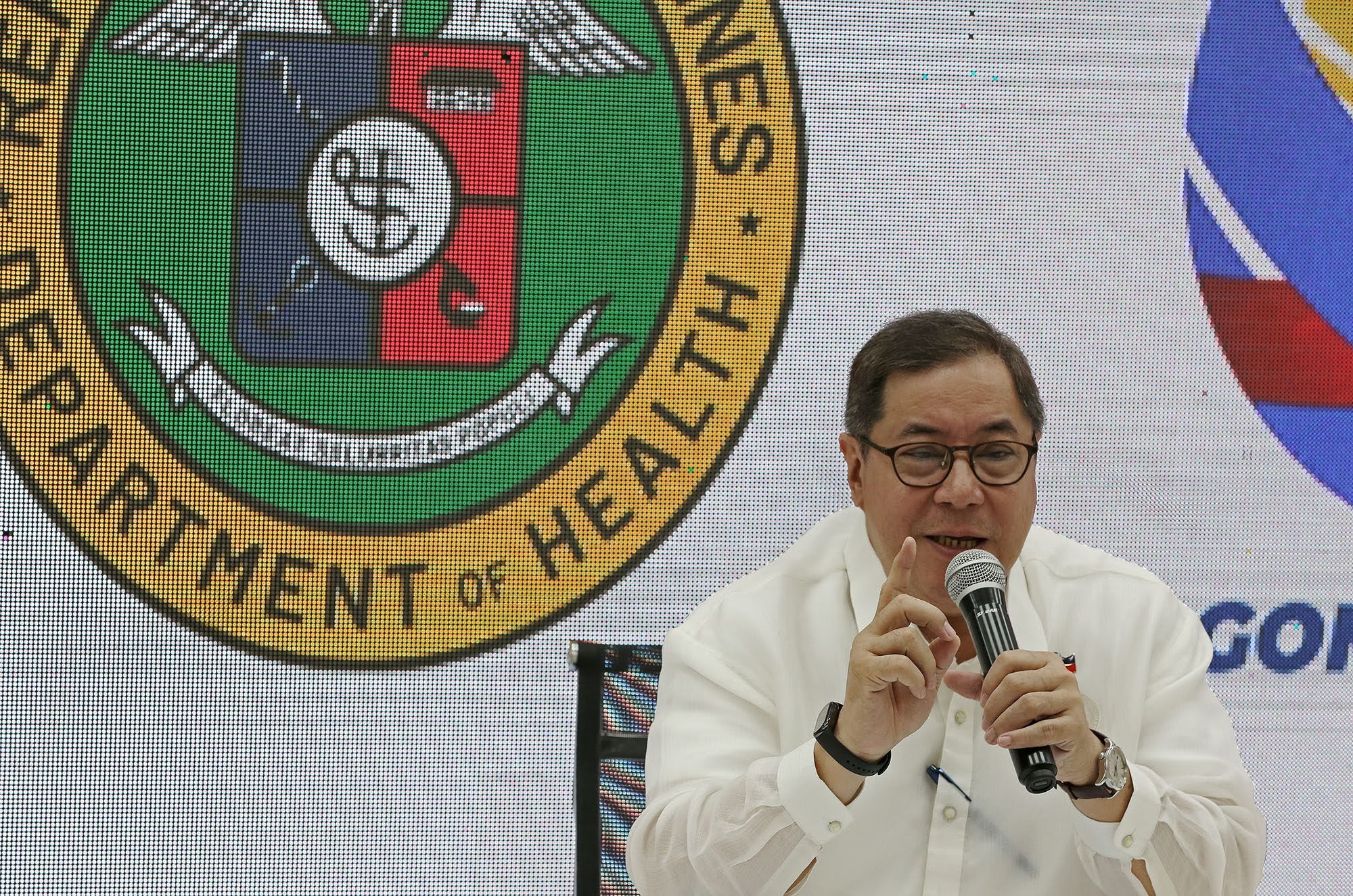
NOT FDA-APPROVED Health Secretary Teodoro Herbosa, in a press briefing on Monday, asked authorities to go after those offering illegal or smuggled mpox vaccines in the country, saying the Food and Drug Administration has yet to approve any vaccine for the disease, which has so far infected 18 patients since August. —Richard A. Reyes
MANILA, Philippines — The Department of Health (DOH) has asked for help from law enforcement agencies in finding out how some individuals and private establishments supposedly managed to get hold of mpox vaccines, although none have been approved by the Food and Drug Administration (FDA).
In a press conference on Monday, Health Secretary Teodoro Herbosa said the DOH would leave it to the Department of Justice and National Bureau of Investigation to pursue charges against these individuals for duping the public by giving them a false sense of protection from mpox.
“All vaccines, whether [procured by] public or private [entities], must first be registered with the FDA. Once it is not, it is considered contraband or smuggled. Therefore, these are illegally acquired vaccines … since the FDA has not yet approved any mpox vaccine for use in the country,” he warned.
READ: WHO: Anti-mpox jabs to go to Africa first
According to Herbosa, some establishments, including massage and spa parlors—considered high-risk places for contracting mpox—were claiming that their staff and therapists were “mpox-vaccinated.”
One spa in Makati City said in a social media post that its mpox vaccinations were “administered by private medical providers and are not affiliated with any local government programs.”
READ: Mpox: What is it, how it spreads, care for patients
Under Republic Act No. 9711, or the FDA Act of 2009, the manufacture, importation, exportation, sale, offering for sale, distribution, transfer, nonconsumer use, promotion, advertising, or sponsorship of health products without proper authorization are prohibited.
Penalties for violators
Violators face imprisonment ranging from one to 10 years, and/or a fine of P50,000 up to P500,000. The unregistered medical products, such as vaccines, shall also be confiscated.
According to the DOH, mpox vaccines require certain storage and handling conditions. But without the safeguards set in place by the DOH and FDA, consumers could not be assured of the safety and efficacy of the shots.
“If you are inoculated with an mpox vaccine that is unapproved by the FDA and something bad happens to you, if you experienced side effects or complications, or worse, you died, who will we make accountable?” Herbosa said.
As of Monday, the DOH has logged a total of 27 mpox cases in the country since 2022.
Of the 18 cases detected since August this year, five have already recovered, while 13 remain in home isolation. The 18 patients are from the National Capital Region (12), Calabarzon (five) and Cagayan Valley (one).
The DOH asked the public to wait a little longer, saying it was better to get mpox vaccine doses once they become legally available in the country “to ensure that you are getting real, safe and effective vaccines—and not just a false sense of security.”
Those with more money at their disposal could opt to fly to countries with government-approved mpox vaccines and get inoculated there.
Procurement in process
Herbosa said the country was in the process of securing 2,500 doses of Bavarian Nordic’s mpox vaccine Jynneos that had been offered by the World Health Organization.
There are no mpox vaccines currently available in the Philippines, as most of the supply has been directed to African countries experiencing an upsurge in cases.
Healthcare workers, specifically dermatologists, will receive the first few doses of the vaccine when these arrive in the Philippines. Next in line are key populations with a higher risk of contracting mpox.
“We are next in line to get the vaccines. [Getting vaccines] is not done in an instant. There is coordination and proper processing, but we are shortening the time so that these legitimate vaccines will arrive in the country as soon as possible,” said Albert Domingo, spokesperson for the DOH.
On Sept. 13, the WHO prequalified Jynneos, paving the way for the wider use of the mpox vaccine.